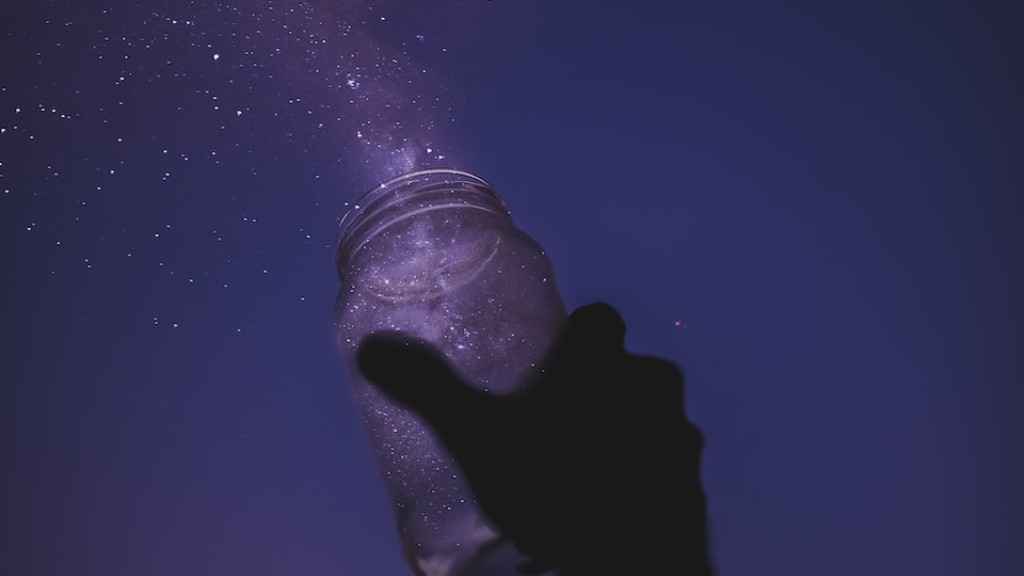Are you one of those people who have regular vivid dreams? If so, you might be wondering what they mean. Dreams are a window into our subconscious minds, and they can be interpreted in many ways. Some people believe that vivid dreams are a sign that we are processing something deeply, or that we are working through some sort of issue in our lives. Others believe that they are just a fun way for our brains to entertain us while we sleep! Whatever you believe, there’s no doubt that vivid dreams can be fascinating.
There is no definitive answer to this question as dreams can be interpreted in many ways. Some people believe that vivid dreams are a way for the subconscious mind to process information and deal with stressors or unresolved issues. Others believe that they are simply a result of an overactive imagination. However, many people believe that vivid dreams can be meaningful and that they may be a way to receive messages from the subconscious or spiritual realm.
What causes dreams to be more vivid?
There are a few different theories about what causes vivid dreams, but the most likely explanation is that they’re simply a byproduct of the sleep process. Dreams are thought to be generated in the brain’s “default mode network,” which is active when we’re not focused on the outside world. This network is more active during REM sleep, which could explain why dreams tend to be more vivid during this stage of sleep.
Negative vivid dreams can be emotionally disturbing and disruptive to your sleep, which can cause health problems. If you are experiencing negative vivid dreams on a regular basis, it is important to consult with a healthcare professional to rule out any underlying medical conditions.
Do vivid dreams mean good sleep
REM sleep is a normal part of the sleep cycle, and it’s usually a sign that you’re getting good sleep. Dreams during REM sleep can actually improve your ability to do certain things when you’re awake.
There are different types of dreams – some people have very vivid, intense dreams that feel very real, while others have more mundane dreams that are not as vivid or intense. Vivid dreaming is a type of dream that is more intense and realistic than a typical dream. You may also remember your vivid dream a lot easier than a typical dream.
What stage of sleep causes vivid dreams?
It can be hard to wake up from REM sleep because it is such a deep stage of sleep. REM sleep happens about an hour to an hour and a half after falling asleep and it is when you tend to have vivid dreams. If you are woken up during REM sleep, you may feel disoriented and disoriented for a few minutes.
The above statement is true. When we are sleep deprived, our brains are more active during sleep and we tend to dream more vividly.
What is the most common dream people have?
Falling dreams are most likely to happen during the Rapid Eye Movement (REM) stage of sleep, when people are more likely to dream vividly. Dreams about falling often evoke feelings of anxiety or fear.
Lucid dreams are most often described as being dreams in which the dreamer is aware that they are dreaming and can even control the dream. While researchers believe that everyone has likely experienced a lucid dream at some point in their life, it is thought to be a relatively rare occurrence. In fact, some experts believe that only around 55 percent of people have experienced a lucid dream at least once. Despite this, however, lucid dreaming is still a widely studied topic by sleep experts and researchers.
What are the 3 types of dreams
Most people dream every night during REM sleep, regardless of whether or not they remember their dreams. There are five main types of dreams: normal dreams, daydreams, lucid dreams, false awakening dreams, and nightmares.
Normal dreams are the most common type of dream and typically occur during REM sleep. They are often nonsensical and lack continuity.
Daydreams are fantasies that occur while you are awake and are often triggered by boredom or daydreaming.
Lucid dreams are dreams in which you are aware that you are dreaming and can sometimes control the dream.
False awakening dreams are dreams in which you believe you have awoken from a dream, only to realize you are still dreaming.
Nightmares are frightening dreams that can cause anxiety and sleep disturbance.
There are a few reasons why you might remember your dream. It could be that you simply woke up during it, so it’s fresh in your mind. Or remembering could mean that you’re remembering the very last dream you had rather than the dream in full. Either way, it’s interesting to think about what your dream could mean for you.
What is the longest dream ever?
The longest recorded period of REM is one of 3 hrs 8 mins by David Powell (USA) at the Puget Sound Sleep Disorder Center, Seattle, Washington, USA on 29 April 1994. This is an amazing feat andshows that with the right medical treatment, people with sleep disorders can lead relatively normal lives.
Most dream interpretations are based on the premise that dreams are symbolic of our fears, desires, and emotions. dream experts believe that understanding the meaning of our dreams can help us gain insight into our waking lives. Here are seven of the most common dreams and their interpretations:
1. Being Attacked or Chased
This dream is often a symbol of feeling threatened or helpless in a situation. It can also indicate that you are experiencing anxiety or stress in your life.
2. Being Late
This dream may be a sign that you are feeling unprepared or overwhelmed in some area of your life. It can also indicate a fear of failure or missing out on something important.
3. Loved Ones Dying
This dream can be interpreted in a number of ways. It may be a sign of grief or regret in your life. It may also be a warning sign of something bad happening. Alternatively, it could be a symbolic representation of change or loss in your life.
4. Falling
This dream is often a symbol of feeling out of control or helpless. It can also indicate a fear of failure or success.
5. Flying
Flying dreams can be interpreted in a number of ways. They may be a
Why do we forget our dreams
Researchers believe that the MCH cells play a role in preventing dreams from being stored in the hippocampus. Dreams primarily occur during REM sleep, when the MCH cells are turned on. When these cells are activated, they may prevent the content of a dream from being stored in the hippocampus. As a result, the dream is quickly forgotten.
There may be a link between dreaming and creativity. Studies have found that people who remember their dreams tend to be more creative and have better problem-solving skills than others. A possible explanation is that the bizarreness and unusual characteristics of dreams stimulate a different way of thinking. This could lead to greater creativity and better problem-solving skills in waking life.
Why don’t we remember being babies?
During the crucial period of brain development, our memory also grows and changes. This is because the connections between neurons (nerve cells) are constantly being formed and strengthened. This process is known as synaptic plasticity, and it is essential for learning and memory.
There are several dangers associated with lucid dreaming that people should be aware of. One of the dangers is that it can lead to less sleep quality. This is because vivid dreams can wake you up and make it hard to get back to sleep. Additionally, lucid dreaming can cause confusion, delirium, and hallucinations in people who have certain mental health disorders. This is because the line between what is real and what is imagined can become blurred.
Final Words
There isn’t a single answer to this question as dreams can be interpreted in many ways. Some people believe that vivid dreams are a way for our subconscious to process information and emotions, while others interpret them as signs from the universe or our Higher Selves. Some research suggests that dreams can help us problem-solve
In general, dreams are thought to be a mix of thoughts, emotions, and memories that our brain processes while we sleep. They can be influenced by our personal experiences, beliefs, and even what we ate for dinner. So, what do vivid dreams mean for you? Only you can answer that question.
Vivid dreams mean different things for different people. Some believe that they are messages from the subconscious, while others believe that they are simply a result of an overactive imagination. There is no one answer that fits everyone, but it is interesting to explore what dreams mean for you.





